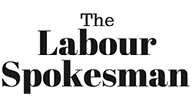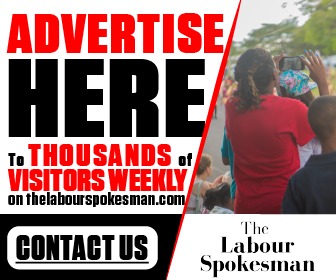Last Saturday the world learned, in very quick time, that Haiti’s Prime Minister, Dr. Jack Guy Lafontant, had bowed to ‘the power of the people’ and had tendered his resignation to President Jovenel Moïse. Members of his cabinet followed in short order.
The people of Haiti had risen up against their government and, for several days, had been protesting against the state’s intention to impose certain increases on the retail prices of liquid fuels. What was it all about, really?
As is the case in most of the world’s developing countries the Government of Haiti (GOH) subsidizes the cost of fuel sold in that country. This is done in attempts by such governments to ease the pains and burdens of the cost of living for the poor and the downtrodden of the population, and also as a way of helping them to develop small and medium sized enterprises.
In those cases EVERYONE benefits from such subsidies, rich and poor, big and small alike. However, when that happens in such ways as to effect gross distortions and, worse yet, to cause the mechanism to work against the not-so-well-off, then the governmental authorities of that country are quite literally begging for trouble.
According to World Bank information (contained in a report issued in 2017) Haiti spent 2.2 percent of its Gross Domestic Product (GDP) on subsidies in the year 2014. What was particularly troubling about the matter was the fact that the richest 20 percent of Haitians received 93 percent of the subsidies. In other words, more than four-fifths of the population had to make do with less than 10 per cent of the benefits.
The World Bank had also reported that less than 60 percent of the Haitian population make the equivalent of US$2.41 (EC$6.51) per day.
Earlier this year, The GOH had signed an agreement with The International Monetary Fund (IMF) enabling them to utilise some ninety-six million dollars (US currency) (US$96,000,000), partly in loans and partly in grants, in efforts to bring about certain economic reforms and developments in that country.
As a part of the agreement, The IMF required GOH to remove the subsidies on fuels.
Thus it was that on Friday 6 July Prime Minister Lafontant announced that, effective the following day (Saturday 7 July 2018) prices would be raised by 51 percent on kerosene, by 38 percent on gasoline, and by 47 percent on diesel.
That was way too much for the ordinary people of Hait to bear. Their anger was palpable. All across the country protests immediately broke out. It was truly spontaneous.
As the days went by, the then prime minister and his government refused to yield, even though business and opposition groups had joined in calling for them to step down, accusing them of seriously mishandling the entire matter. That combination of resistance should have made it clear to the government that they were seriously out of favour.
For about a week the government had stubbornly resisted the calls to step down, despite the fact that the demonstrations grew daily in size, occurrence, and intensity. Roads were blocked, tires were burned, and most regrettably, shops were vandalised. Rather more unfortunately some six or seven persons were killed.
Prime Minister Lafontant resigned on Saturday, eventually bowing to the pressure of the people’s will, which had also led to calls for a vote of no-confidence in the Haitian parliament. He resigned before such a vote was called, possibly leading to his removal from office.
The people of Haiti have suffered much, and for a very long time. They have experienced living under the tyranny of several regimes, usually imposed and maintained by an external state. It is very clear that they do not intend to allow any such regime to ever take over their country again. They have amply demonstrated that they will simply refuse to live under tyranny again, even if it means giving their lives to protect their fellow Haitians.
Just like many others, this most recent Haitian experience underscores the point that the people of a country are the ones who ultimately have the political power, and that politicians who continue to ignore that fact, do so at their own political peril.
These are facts which we have repeatedly attempted to get across to you our people, the people of St. Kitts and Nevis, with the combined intention of raising your consciousness, alerting you to the need to be ready to defend your rights, while at the same time placing the government on notice that any attempt by them to dilute or, in any other way, mess about with our voting power, especially that of Kittitians, quite simply will NOT be tolerated.
Additionally, we have tried to warn them that messing about with the country’s affairs, the practices of corruption, the victimisation of our people, the seizure of public assets, the misappropriation of public funds, and all other acts of betrayal, will all in due course be brought forward for appropriate redress at the election polls.
It is our sincere hope that good sense will prevail and that the SCHEME UNITY people will come to their senses and refrain from pushing the people into asserting their power other than by the more normal means.
This week, in closing, we proffer a few suggestions with the hope that they will be taken on board and move our nation in a direction that offers a real new hope for political, social and economic improvements.
Wednesday marked the centenary celebration of Nelson Mandela’s birth. Former US President Barrack Obama was the feature speaker, and on Tuesday he delivered a powerful (but NOT pompous) speech, which, amongst many other things, contrasted so markedly with what went on in Helsinki the day before, and also reminded the world of what the US once had compared with what it now has. A related article from ‘The Conversation (Africa)’ is carried at our inner pages.
Mr. Obama made a number of suggestions and recommendations for South Africa’s return to carrying forward and manifesting Mandela’s legacy. We urge adoption of the following three for our way forward, including that of ceasing and desisting from the all too obvious current efforts to destroy the very fine legacy of our beloved comrade leader, Dr. The Rt. Hon Denzil Douglas.
First is that of promoting and working for a truly democratic society, one in which we eschewed tribalism and patronage politics, and, at the same time promoted collective and servant leadership.
Just as it is with South Africa our country is at a crossroads, and what we have achieved and built on since 1932 is being seriously threatened and contested by those who espouse the politics of fear, resentment, fueled by the dominating interests and contradictions of mercantile and professional political elites, in our case a tiny minority which has deceived thousands of our people and once again assumed a monopoly of power. Just as it has become in South Africa these those features have manifested themselves in xenophobia, political terrorism, economic greed and authoritarianism.
And third is that of recognising and fully accepting that democracy is still the best vehicle to achieve social justice. But, just as it has been said for South Africa, for us it also needs to be about more than just holding elections. “It must be part of civic culture, and driven by young people who are passionate about building a new society.”
Mr. Obama’s message reminded South Africa and ourselves of “our own duties and responsibilities to protect our democratic gains, and to continue the quest for a just, free world where all can enjoy dignity”. The point was also made that strong men politicians are on the ascendancy, hiding behind the façade of ‘elections’, while harassing their opponents and the media. Just as it is in St. Kitts and Nevis.
He also made the point that we have to believe in the facts. Some politicians now make stuff up, and when caught out lying show no sense of shame. Just as it is in St. Kitts and Nevis. He went on to assert that “If we want to work for freedom, we have to fight inequality. Where you have extreme economic inequality, the wealthy elite will have wildly disproportionate political influence. We need to keep protesting and keep resisting. We need inclusive education, collective bargaining rights, and to break up monopolies. You must worry about economics if you want to get democracy to work.”
Finally, he reminded us all, that “The struggle for basic freedoms and justice is never truly finished. Human rights require us to recognise the humanity in all persons. These are not western ideals but universal ideals. Schools should teach not blind obedience, but critical thinking. Democracy is about more than just elections. It means listening to opposing views, not only the ones you agree with. It means working with your enemies, so they become your partners. Ultimately, right makes might.” He invited the world to find its better angels.
Let us all try to learn from Mr. Obama.



